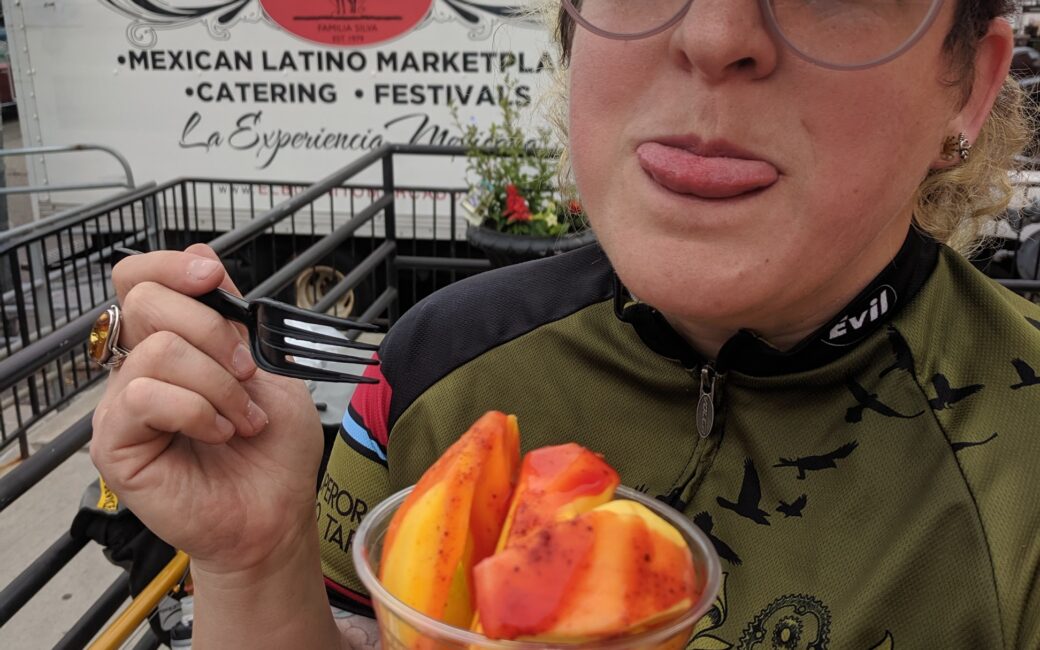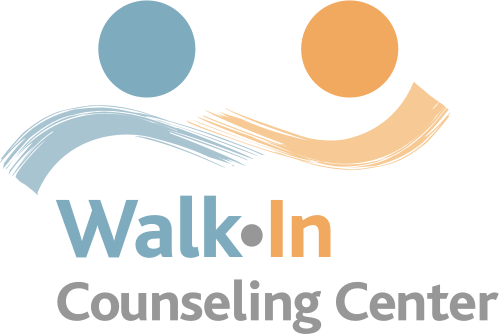For volunteer counselor Luci R., providing free counseling at Walk-In has never been more important than it is now. Luci is one of a handful of Spanish-speaking counselors, working with clients who would otherwise face long waiting lists for Spanish services, or who can’t find counseling at all.
“Walk-In is one of the only organizations that will see people regardless of immigration status or income,” says Luci, who volunteers while also working full-time. “There is no end to the need, because there is huge population of immigrants who can’t see a therapist.”
Luci, who uses they/them pronouns, got a master’s degree in social work last year at the age of 39. With a mom from Mexico and a dad from Minnesota, Luci grew up bilingual and in a family of mixed immigration status. They also had a family member who was incarcerated.
“I was helped by social workers myself when I was young. I dropped out of high school and later got my GED, then my bachelor’s degree, while working full-time. I chose social work because I wanted to do things to help my community.” Luci is the first person in the family to earn a master’s degree.
These personal experiences help Luci relate to the challenges in clients’ lives. Many are from Mexico, Guatemala, Ecuador, Honduras, Nicaragua, El Salvador or Chile. Some are native speakers of indigenous languages whose second language is Spanish. Many people Luci works with have experienced trauma and are dealing with anxiety or depression.
“There is fear of deportation, family trauma, and pandemic-related financial stress. People in the restaurant industry (where people without legal status in the U.S. often work) have either lost their jobs or faced high risk of getting COVID, or experienced trauma related to being sick. They’ve been evicted and lost stability in their lives.”
In the face of so much need, Luci makes sure to be clear about what it will be possible to do. Clients can get support with managing emotions and making plans to adjust to life changes like the deportation of a family member. But working through someone’s trauma, for example, may not be possible because doing so requires the person to be in a place of stability. “Not one of my clients is in a stable situation,” Luci says.
Luci encourages all professional counselors to volunteer at Walk-In if it’s at all possible. They also think it’s a good idea for therapists to work on becoming more culturally aware and ask for help when a cultural issue comes up at work.
Luci recalls helping a friend, another social worker, with a cultural issue around Mexican nicknames. “It’s very common for people to have descriptive nicknames that are terms of endearment. In Mexican culture, a large-bodied person may have a nickname like ‘gordito’ (chubby) that isn’t demeaning at all.” A child in an eating disorder program had a very supportive family – but also a family nickname that translated to “little bacon.”
Luci was able to explain that having that nickname was not an indication that the child’s well-being was at risk. Cultural misunderstandings like this can result in inadvertent harm, Luci notes — such as Child Protection being called when it isn’t warranted.
For many counselors, it can be stressful to be unable to meet all of a community’s needs and to hear so many traumatic life stories. To manage stress, Luci says, “I take my own advice. I see a therapist. I knit, make art, go for walks, garden, read books, ride my bike. And I try not to be too serious.”And that’s what you see in the photo of Luci.

